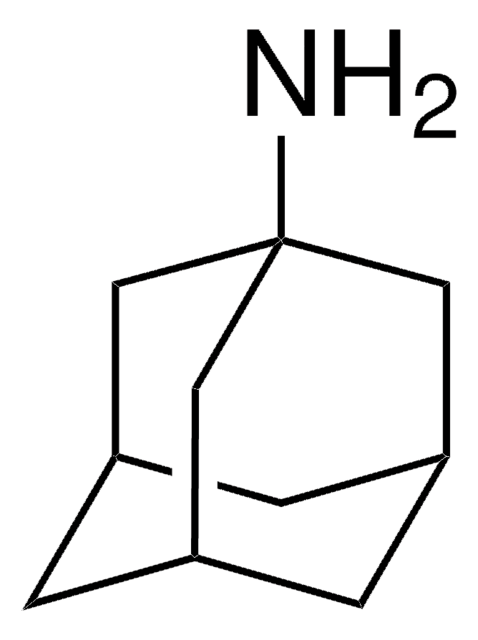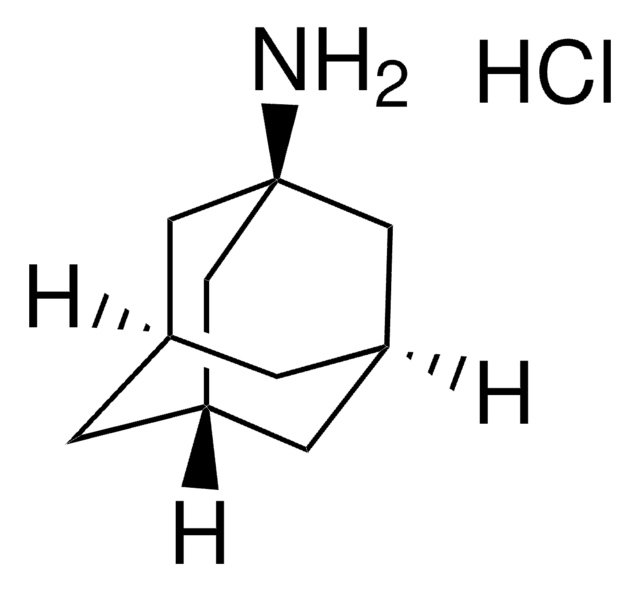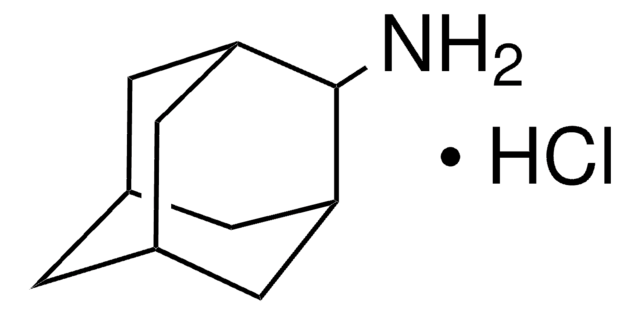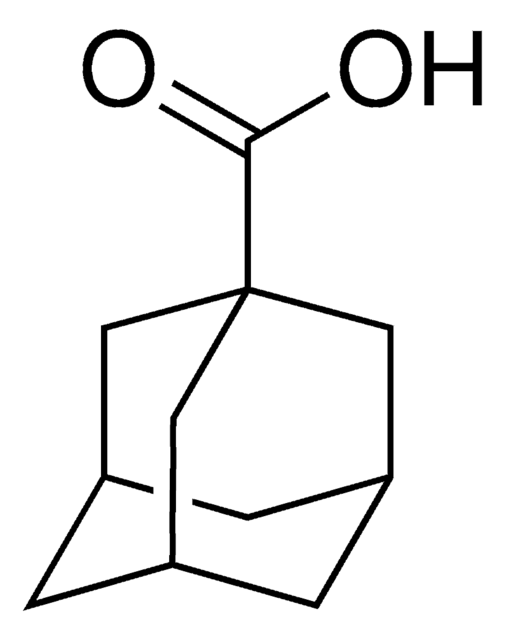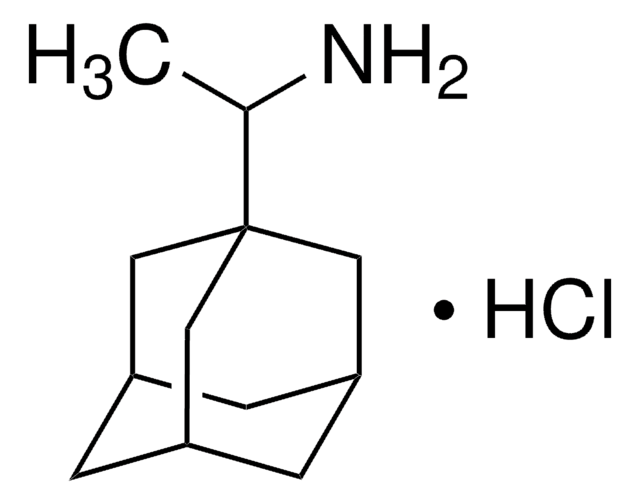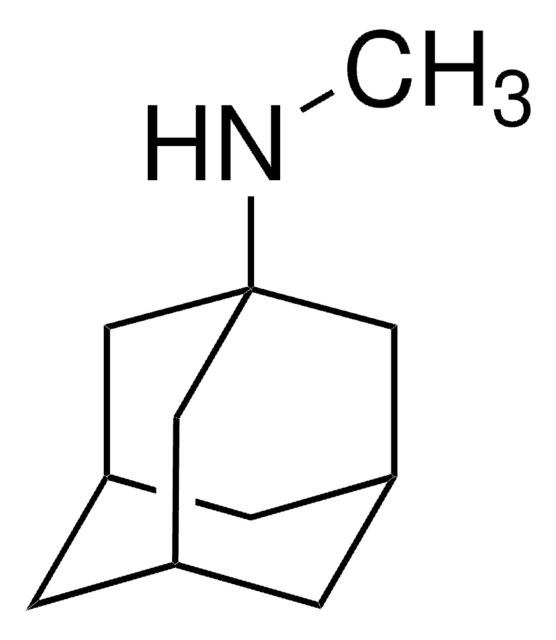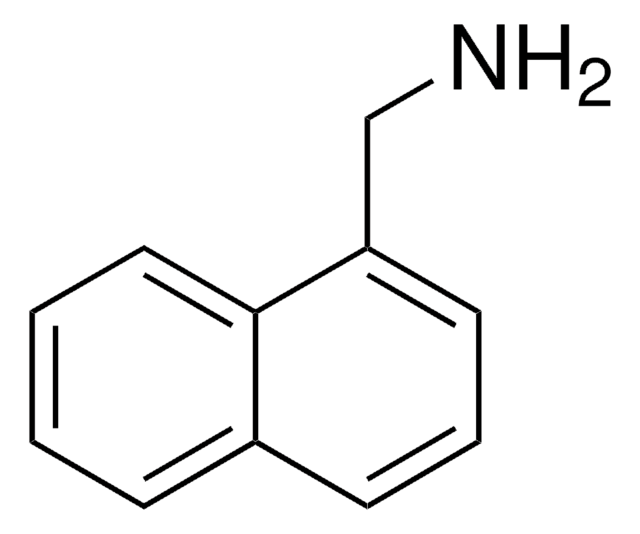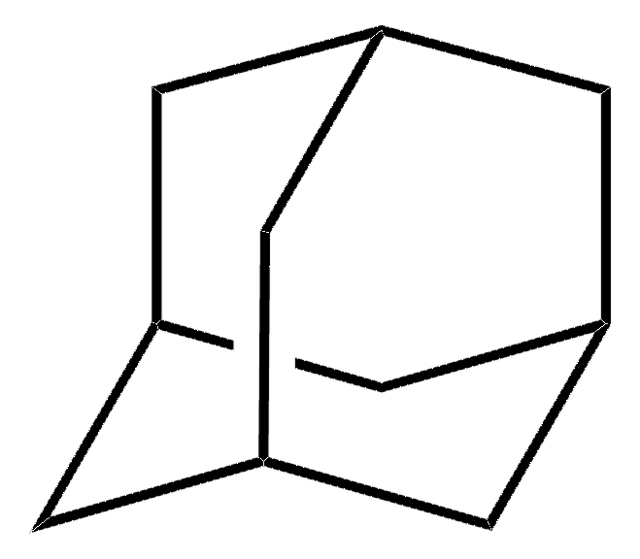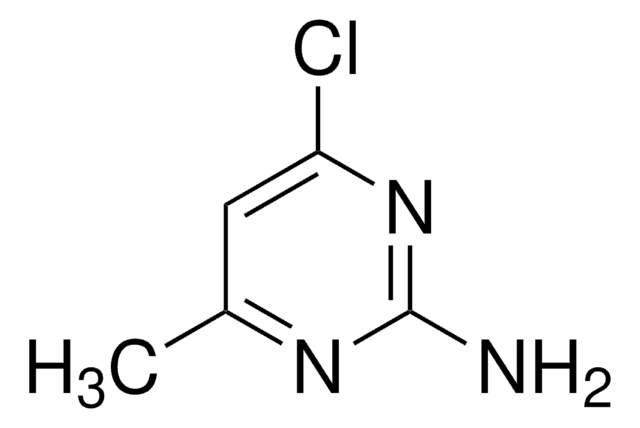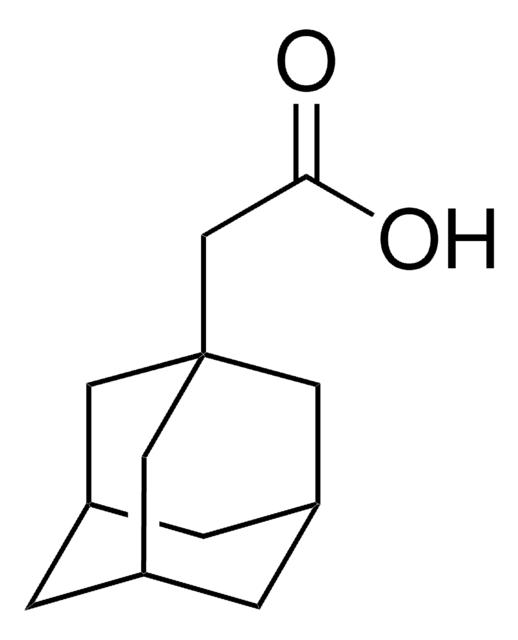180378
1-Adamantanemethylamine
98%
Synonym(s):
1-(Aminomethyl)adamantane
Sign Into View Organizational & Contract Pricing
All Photos(1)
About This Item
Empirical Formula (Hill Notation):
C11H19N
CAS Number:
Molecular Weight:
165.28
MDL number:
UNSPSC Code:
12352100
PubChem Substance ID:
NACRES:
NA.22
Recommended Products
Quality Level
Assay
98%
form
liquid
refractive index
n20/D 1.5137 (lit.)
bp
83-85 °C/0.3 mmHg (lit.)
density
0.933 g/mL at 25 °C (lit.)
functional group
amine
SMILES string
NCC12C[C@H]3C[C@H](C[C@H](C3)C1)C2
InChI
1S/C11H19N/c12-7-11-4-8-1-9(5-11)3-10(2-8)6-11/h8-10H,1-7,12H2/t8-,9+,10-,11-
InChI key
XSOHXMFFSKTSIT-BIBSGERRSA-N
Gene Information
human ... GRIN2A(2903)
Related Categories
General description
1-Adamantanemethylamine is a large amine present on the wall of 6,7-diaminoquinoxaline. The thermodynamic complex formation constant of 1-adamantanemethylamine was studied.
Signal Word
Danger
Hazard Statements
Precautionary Statements
Hazard Classifications
Eye Dam. 1 - Skin Corr. 1B
Storage Class Code
8A - Combustible corrosive hazardous materials
WGK
WGK 3
Flash Point(F)
197.6 °F - closed cup
Flash Point(C)
92 °C - closed cup
Choose from one of the most recent versions:
Already Own This Product?
Find documentation for the products that you have recently purchased in the Document Library.
Customers Also Viewed
Shengxiong Xiao et al.
Chemical communications (Cambridge, England), 46(14), 2459-2461 (2010-04-10)
The condensation of a Kemp's triacid derivative with a diamino resorcinarene yielded a cavitand with the deepest cavity prepared to date featuring an inwardly-directed carboxylic acid. The extended 6,7-diaminoquinoxaline wall bearing the acid allowed accommodation of large amines, such as
Seunghyun Lee et al.
Colloids and surfaces. B, Biointerfaces, 147, 281-290 (2016-08-16)
Albumin has been viewed as one of the most attractive biomacromolecules for making nanoparticulate systems due to its biocompatibility and chemical functionality. Thus far, albumin nanoparticles (NPs) are prepared by several limited methods, such as, desolvation, emulsification or high-pressure homogenization.
Joachim F R Van Guyse et al.
Polymers, 13(3) (2021-02-04)
Smart or adaptive materials often utilize stimuli-responsive polymers, which undergo a phase transition in response to a given stimulus. So far, various stimuli have been used to enable the modulation of drug release profiles, cell-interactive behavior, and optical and mechanical
Haibao Jin et al.
Biopolymers, 110(4), e23258-e23258 (2019-01-25)
Due to the branched structure feature and unique properties, a variety of star-shaped polymers have been designed and synthesized. Despite those advances, solid-phase synthesis of star-shaped sequence-defined synthetic polymers that exhibit hierarchical self-assembly remains a significant challenge. Hence, we present
Our team of scientists has experience in all areas of research including Life Science, Material Science, Chemical Synthesis, Chromatography, Analytical and many others.
Contact Technical Service